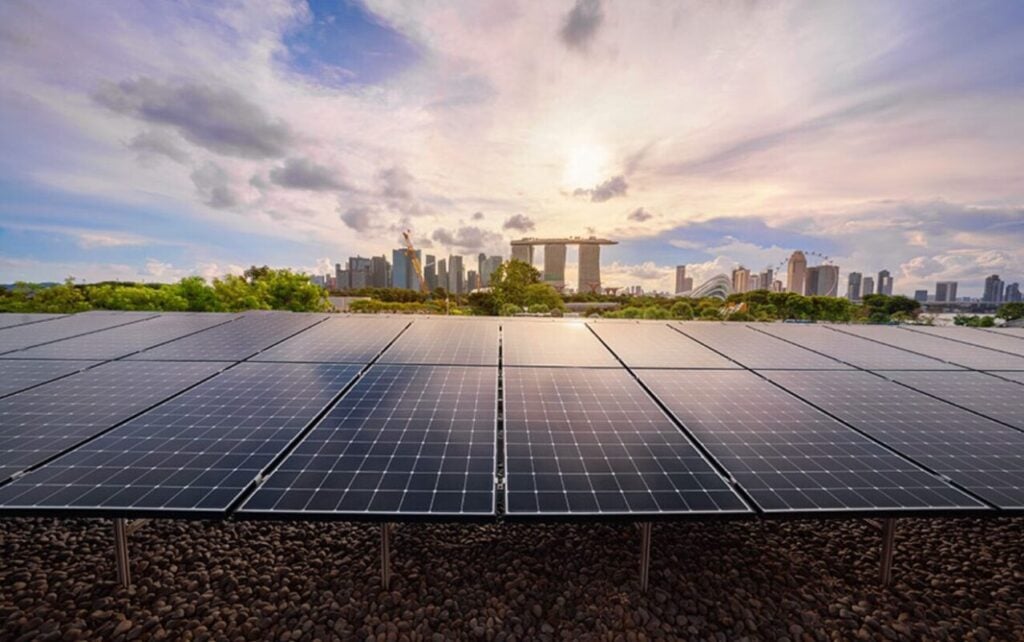
US Customs & Border Protection (CBP) has denied Maxeon’s protests made against its detention of the company’s modules brought into the US in July 2024.
Singapore-headquartered manufacturer Maxeon announced plans to protest against the detention last November, when CBP held shipments of the company’s Maxeon 3, Maxeon 6 and Performance 6 solar panels relating to the enforcement of the Uyghur Forced Labor Prevention Act (UFLPA), which was signed into law in 2021.
Try Premium for just $1
- Full premium access for the first month at only $1
- Converts to an annual rate after 30 days unless cancelled
- Cancel anytime during the trial period
Premium Benefits
- Expert industry analysis and interviews
- Digital access to PV Tech Power journal
- Exclusive event discounts
Or get the full Premium subscription right away
Or continue reading this article for free
While CBP has not explicitly suggested that Maxeon’s products are related to forced labour in the Xinjiang Uyghur Autonomous Region (XUAR), it informed the company that it had not provided “sufficient documentation” to demonstrate its compliance with the UFLPA. Maxeon has since said that it has provided “thousand of pages of documentation” demonstrating its compliance with the UFLPA, and that the CBP’s dismissal of its protest is “without merit”.
Maxeon also described CBP assessment process as “highly unusual” is now considering appealing this dismissal at the US Court of International Trade.
When asked about the ongoing detention of the modules, a CBP spokesperson told PV Tech that: “CBP is unable to disclose additional information or plans regarding forced labour enforcement activities to protect law enforcement sensitive and business confidential information. CBP does not comment on specific investigations or specifically on how it conducts its law enforcement operations.”
The spokesperson added that: “CBP’s enforcement of the UFLPA is crucial to ensuring that goods entering the US are not the product of human suffering.”
Maxeon to ‘establish alternative’ supply chains
The CBP ruling, and subsequent dismissal of Maxeon’s protest, does not refer to the company’s supply chain as a whole, as CBP assesses each shipment individually. As a result, while the company’s July shipments to the US remain in limbo, its broader plans to shift its global supply chain remain unchanged.
Last year, the company sold its non-US assets to the TCL Group, its parent company, and has now announced plans to establish “alternative manufacturing and supply chains”, which are “not impacted by the CBP decision”.
These include a 2GW module manufacturing plant, for which it has secured a five-year lease of a building in Albuquerque, New Mexico, and at which it expects to begin commercial production in early 2026. Last week, Maxeon announced that it had completed early design and layout work for the plant, and that it would produce “next-generation technology” developed by its in-house research and development (R&D) team, but has not provided further information on the products’ technical specifications.
“Maxeon recognises the importance of continuing the development of our US-based manufacturing facilities,” said Maxeon CEO George Guo, Maxeon CEO. “We are committed to continuing to work with the Trump Administration as well as leaders in New Mexico to deliver our cutting-edge, high efficiency solar products to our residential and utility-scale partners active nationwide.
“Domestic manufacturing is the right thing to do, regardless of tariffs.”
Guo’s point on tariffs is a reference to president Trump’s imposition of tariffs on goods imported from around the world, a move which could have a significant impact on the US solar sector as the country is heavily reliant on the import of components, particularly upstream products such as cells, from Southeast Asia.
While BMI, a unit of consultancy firm Fitch Solutions, suggested that the tariffs would have a limited impact on imports of solar products from Asia to the US, the sheer scale of many of the tariffs, and the realisation of Trump’s notably isolationist trade rhetoric, has shaken confidence in the global solar supply chain.
PV Tech publisher Solar Media will be organising the fourth edition of Large Scale Solar USA in Dallas, Texas 29-30 April. After a record year for solar PV additions in the US, the event will dive into the ongoing uncertainties on tariffs, tax credits and trade policies as more domestic manufacturing becomes operational. Other challenges, such as the interconnection queues and permitting, will also be covered in Dallas. More information, including how to attend, can be read here.






